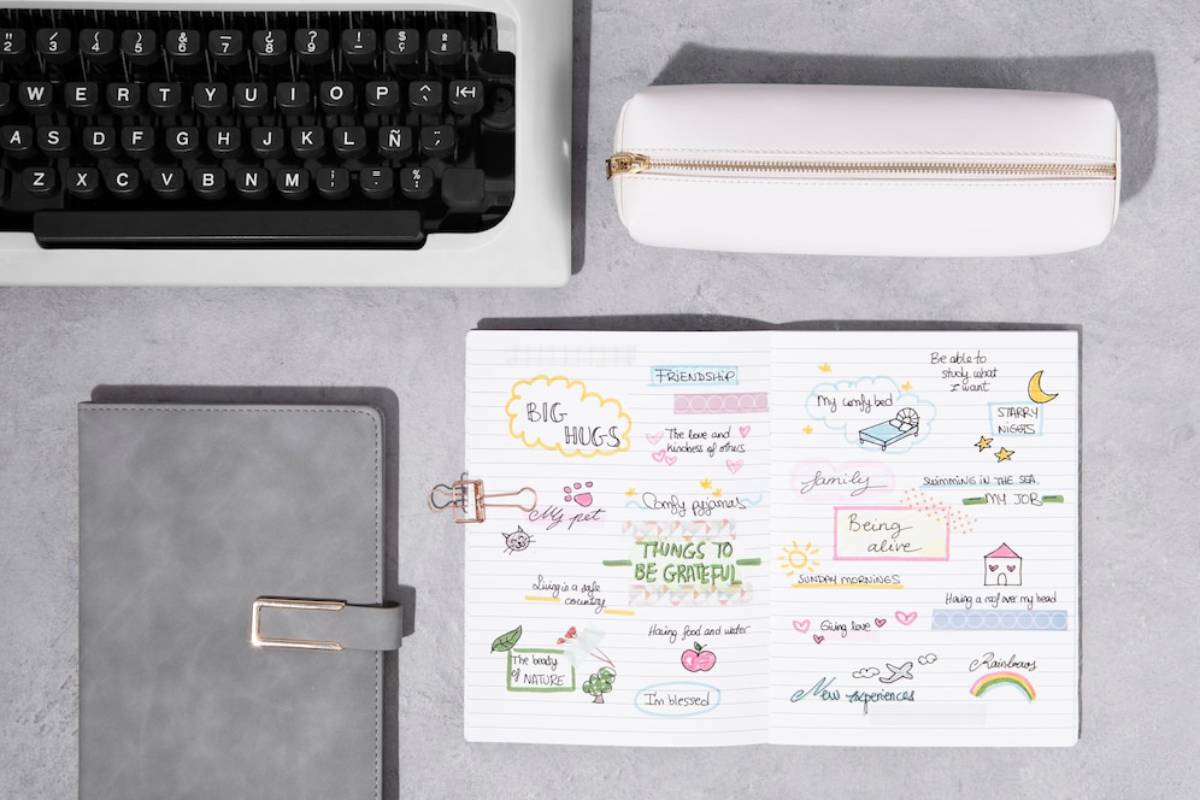
Habit Reflection Templates for Journaling Success
You’ve probably tried building habits before — maybe you made a detailed checklist, joined a 30-day challenge, or downloaded yet another app. But when the motivation wears off, it’s easy to fall back into old routines. The missing piece? Reflection.
That’s where a habit reflection journal changes the game.
Journaling brings clarity to your actions. It helps you understand what’s working, what’s not, and why. When paired with simple templates, it becomes a powerful self-improvement tracker that supports both momentum and mindfulness.
In this post, we’ll explore the best journaling templates for habits, how to use them, and how they can help you build a life based on intention, not just effort. Whether you’re tracking habits for health, productivity, or emotional well-being, these templates make the journey more meaningful and sustainable.
Why Habit Reflection Matters More Than Just Tracking
It’s easy to get stuck in the “tick the box” mindset. You drink your water, tick the box. Go for a run, tick the box. But without pausing to reflect, you lose the opportunity to grow.
The real benefit of reflection:
- Awareness – You spot emotional and behavioural patterns
- Adaptability – You adjust routines instead of giving up
- Alignment – You connect your habits to your values
- Growth – You move from discipline to insight
Tracking tells you what happened. Reflection helps you understand why it happened — and how to improve.
Key Elements of a Habit Reflection Journal
A good habit journal doesn’t need to be complex — just consistent.
These elements form the foundation of effective journaling for habit success:
- Daily and weekly reflection pages
- Prompts for emotional check-ins
- Space for evaluating obstacles and progress
- Visual trackers or rating systems
- Occasional goal reviews
If you combine habit data with regular reflection, your journaling becomes a personal development tool — not just a notebook.

Template 1: Daily Habit Reflection Page
A go-to structure for checking in with your habits every day.
Layout:
- Date:
- Habits Completed Today:
- Most Difficult Habit Today:
- Mood Rating (1–10):
- Trigger Noticed:
- One thing I learned today:
- One adjustment for tomorrow:
Why it works:
This format blends action (what you did) with reflection (why it went that way), helping you make micro-adjustments daily.
If you’re building habits right now, see how building better habits with daily journaling can enhance your consistency and awareness.
Template 2: Weekly Habit Summary Sheet
Zoom out from daily tasks and look at trends. This helps you course-correct with clarity.
Layout:
- Top 3 wins this week:
- Top 3 challenges:
- Habit success rate (e.g. 5/7 days):
- Mood pattern this week:
- Habits I dropped or skipped:
- Reasons why (triggers, environment, emotion):
- What I’ll try differently next week:
Why it works:
This weekly format gives your habits context. You’re not just measuring output — you’re mapping effort, energy, and environment.
Template 3: Monthly Habit Review Grid
Great for long-term vision and self-assessment. Ideal for people working toward bigger goals.
Layout:
| Habit | Start Score (1–10) | End Score | Progress Notes | Adjustment Ideas |
| Sleep 8 hrs | 4 | 7 | Improved bedtime, no screens after 10 pm | Add white noise |
| Journaling | 6 | 9 | Skipped only 2 days | Add emotional prompts |
Why it works:
A visual self-improvement tracker like this reveals progress over time, even when daily changes feel small.
Template 4: Trigger & Response Tracker
Most habits are tied to triggers — situations, emotions, places, and people. This template helps you decode your habit loop.
Layout:
| Date | Trigger | Habit Response | Alternative Tried | Result |
| 3 May | Boredom | Snacking | Walked outside | Felt energised |
Why it works:
You’re rewiring the loop by bringing conscious choice to unconscious behaviour.

Template 5: Goal Alignment Reflection Page
Sometimes habits fail because they aren’t aligned with your real goals. This template helps you check in with the why behind your routine.
Prompts:
- “What is this habit helping me become?”
- “Does this habit align with my values?”
- “If I keep this habit for a year, what will it change in my life?”
- “Am I doing this because I want to, or because I feel I should?”
Why it works:
This template protects you from pursuing habits out of guilt or pressure, and realigns you with purpose.
Choose the Right Habit Template for You
With so many options, how do you choose what fits?
Start with these questions:
- Do I prefer structure or free-flow writing?
- Am I tracking emotional habits, physical habits, or both?
- How much time do I have each day to journal?
- Am I motivated by data, visuals, or language?
Start small — you can combine or adapt templates over time.
When to Journal: Best Times to Reflect
Journaling is most effective when done regularly and when emotions are fresh.
Ideal journaling times:
- Morning (for intention setting)
- Evening (for daily review)
- Weekly (for pattern reflection)
- After difficult days (to process resistance)
Even five minutes can offer meaningful insight — you don’t need long sessions to see results.
Discover how morning journaling helps cement positive routines when starting a new habit.
Real-Life Story: How Templates Created Clarity
Rhea, 29 – Nutrition Coach Rhea started journaling to build better digital boundaries. She used a trigger-response template to track when she was tempted to check social media. She discovered her strongest urges came when she felt lonely after work.
With that knowledge, she replaced her habit with journaling or short voice notes to friends. “I thought I had a phone problem,” she said. “But I had a connection problem. Journaling helped me see that.”
Common Mistakes to Avoid
- Using too many templates at once – Focus on 1–2 to avoid overwhelm
- Skipping reflection when habits go well – There’s always insight in success
- Being too rigid – Templates should guide you, not restrict you
- Avoiding emotional honesty – The point is to reflect, not to impress
- Not reviewing past entries – Growth lives in comparison, not just completion

Making Your Templates Stick
- Print your favourite template and paste it into your journal
- Use colour coding for different habits or moods
- Set journaling reminders tied to another habit (e.g. after brushing teeth)
- Don’t aim for perfect entries — just show up daily
- Review monthly and celebrate small wins
Templates are tools — they should support your clarity, not complicate your process.
Conclusion: Reflect, Refine, Repeat
Building habits isn’t just about discipline. It’s about learning from your daily life — one entry, one insight at a time.
Using a habit reflection journal helps you stay connected to your goals, adjust with intention, and celebrate the progress you might otherwise miss. With the right journaling template for habits, you gain a mirror into your behaviours, a compass for your decisions, and a roadmap to personal growth.
So pick one template. Use it this week. Reflect, refine, and repeat. Your future self will thank you for the clarity you’re creating today.